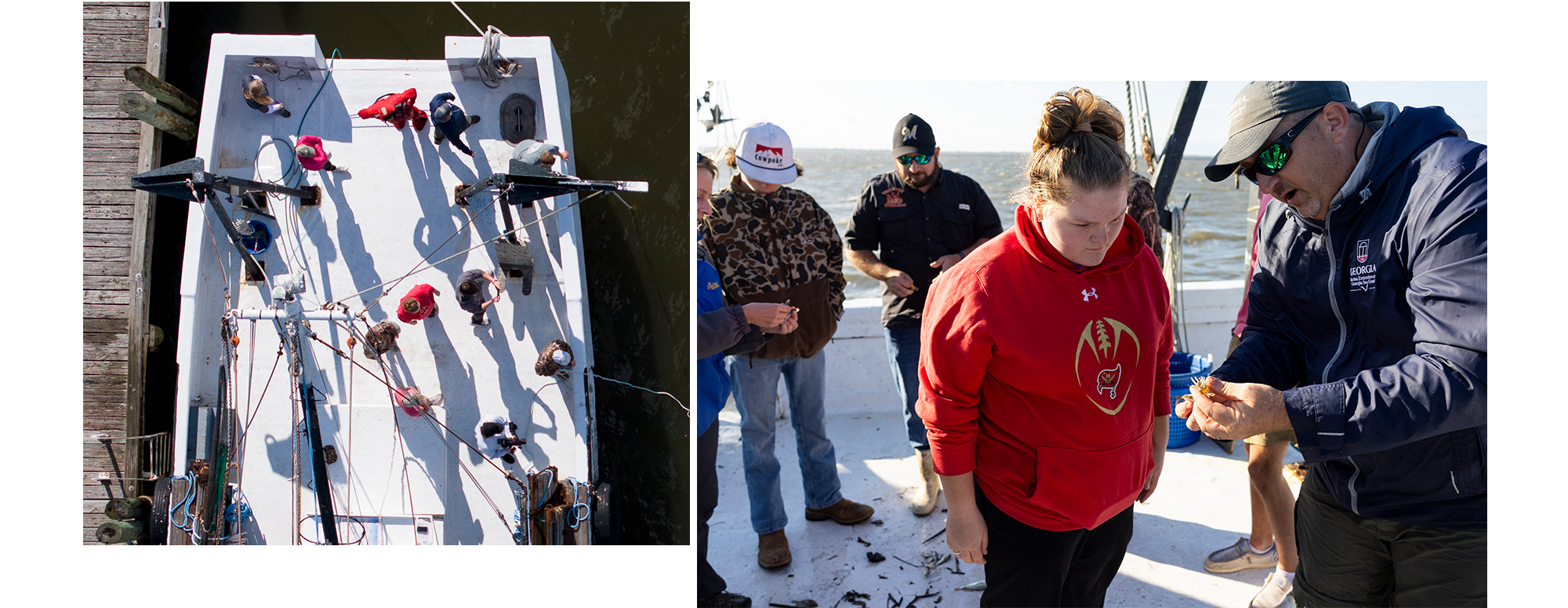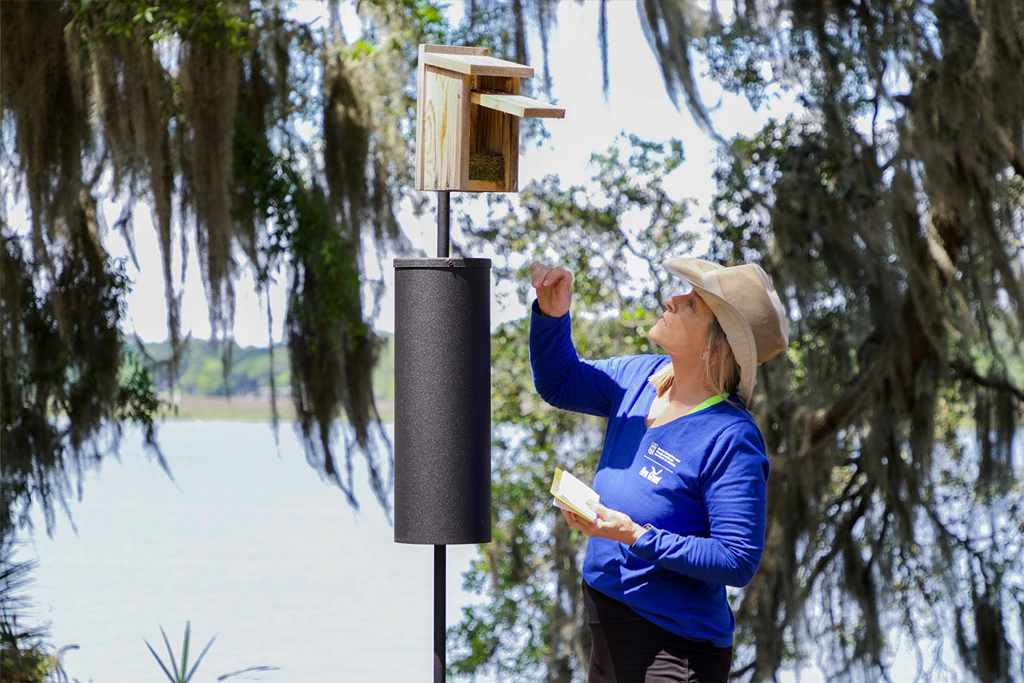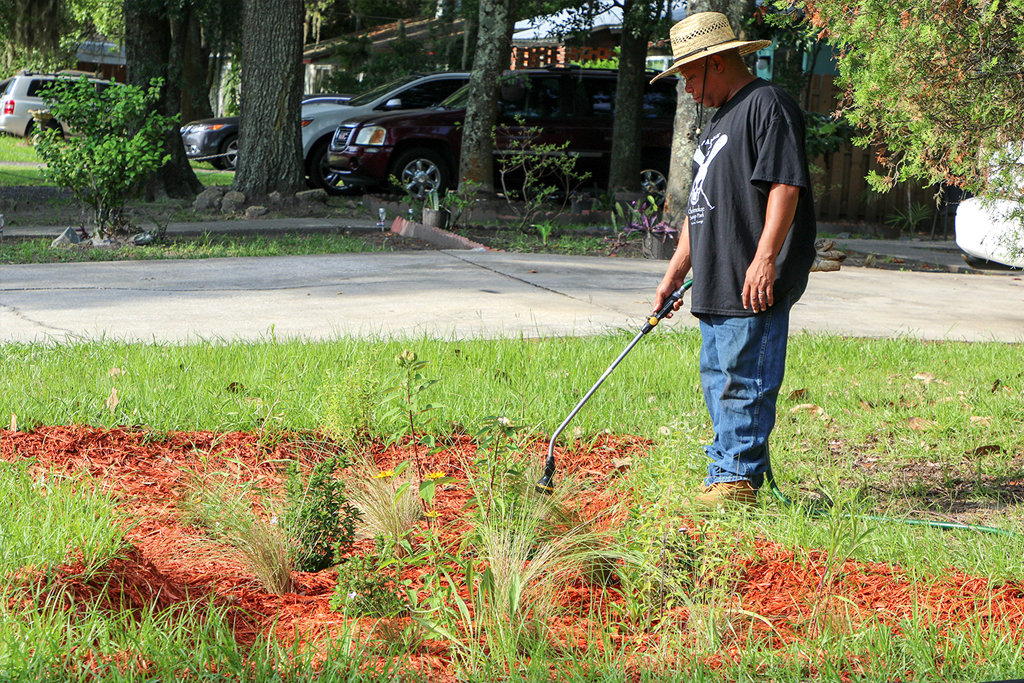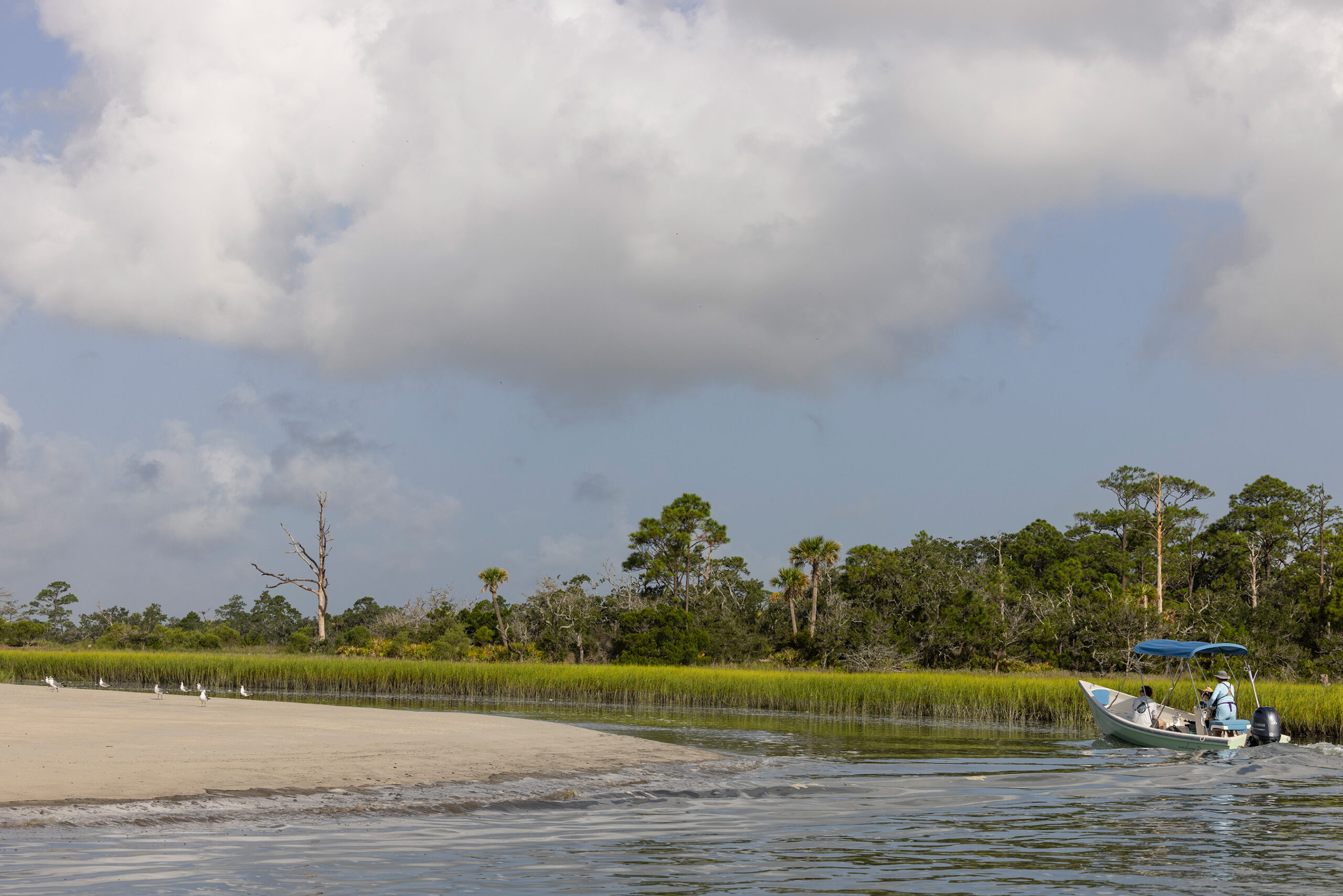Charting a new course
Climbing aboard the R/V Georgia Bulldog is a unique experience for first-timers. The 72-foot vessel was converted from a commercial shrimp trawler into a multipurpose research vessel in 1980. Since then, University of Georgia Marine Extension and Georgia Sea Grant has used it to support fisheries research and training throughout the Southeast coastal region.
Because the Georgia Bulldog is still outfitted with traditional commercial trawling gear, the team at UGA Marine Extension and Georgia Sea Grant can take student and civic groups out for short trawls in Georgia’s estuaries and demonstrate how different types of gear harvest seafood.

On a crisp fall morning, a group of high school students from McIntosh County Academy board the Georgia Bulldog. As they step onto the deck, they take stock of the massive equipment, like the 50-foot-tall outriggers and the 200-pound trawl doors, gaining a new perspective on what it takes to be a commercial shrimper.
“You see the shrimp boats but never know what’s on them. It’s kind of cool to learn about what you drive past every day.”
Zoey Ryals, a junior at McIntosh County Academy, was born and raised in the area but had never been on a vessel like this.
“You see the shrimp boats but never know what’s on them,” she says. “It’s kind of cool to learn about what you drive past every day.”
These students, who are part of a dual enrollment program with Coastal Pines Technical College, are learning about safety at sea, basic navigation and seamanship, common commercial fishing practices, and an overview of fisheries science and management.

“By exposing the students to aspects of commercial fishing, we hope to provide them with new skills, and, long-term, improve the sustainability of an industry that provides economic and cultural value to so many coastal communities.”
UGA Marine Extension and Georgia Sea Grant helped launch the program in 2019, creating the state’s first commercial fishing career pathway course for high school students.
Bryan Fluech, associate director of extension at UGA Marine Extension and Georgia Sea Grant, developed course materials with his late colleague Herbert Truck McIver, who served as a UGA marine resource specialist after spending more than 40 years as a captain and crew member in the shrimping industry.
As a guest instructor, Fluech leads outreach trawls aboard the Georgia Bulldog.
“By exposing the students to aspects of commercial fishing—shrimping in particular—we hope to provide them with new skills, and, long-term, improve the sustainability of an industry that provides economic and cultural value to so many coastal communities,” Fluech says.
A struggling industry
Georgia’s commercial fisheries provide important sources of employment, income, and food. The top three fisheries are shrimp, blue crab, and clams, with shrimp being the state’s largest managed fishery. In 2022, commercial shrimping generated more than $12 million in sales.
The industry is struggling, though. In 1979, there were 1,400 trawling license holders in Georgia. Today, there are just 117. Those who remain are dealing with increasing operating costs, competition from cheaper imported shrimp, regulatory changes, and fewer working waterfronts for docking their vessels.
On top of that, many are having trouble finding qualified crew to work on the boats.
That’s one reason why bringing students aboard the Bulldog for hands-on experience is important, says Robert Todd, the course’s instructor.
“We’re able to expose students to commercial shrimping in a safe environment, letting them run the mechanical mechanisms, such as the wenches, and some will even steer the vessel,” says Todd.

The fourth-generation commercial fisherman’s family owns Todd Shrimping, Inc. When he is not shrimping with his father, Captain Fred Todd, he teaches audio/video technology and commercial fisheries at Mcintosh County Academy.
In addition to teaching the ropes of commercial fishing, Todd uses the course to introduce students to a variety of marine-related careers.
“Getting students exposure to careers that surround the industry—whether it’s the Coast Guard, the Department of Natural Resources, the UGA Marine Extension and Georgia Sea Grant office, TowBoatUS—it doesn’t matter, as long as we’re giving these kids career choices,” says Todd.

Hope on the horizon
More than two dozen students have taken the course so far. Some are interested because of the new skills they learn, like knot tying and becoming certified in CPR and First Aid. Others have roots in the industry.
“Even if you have no intention of going into the commercial industry, taking the course just for the knowledge is worth it.”
The commercial fishing trade is often passed down through generations. Just ask Chris Boone, a commercial fisherman out of Darien, Georgia.
“My great-granddaddy started doing it, and the whole family got into it. I think when I was about 12, I went out for the first time and I’ve kind of been doing it ever since.”
Boone took the course as a freshman at McIntosh Academy. “Even if you have no intention of going into the commercial industry, taking the course just for the knowledge is worth it,” says Boone.

“This program is just one example of the fisheries extension work UGA has been doing for more than 50 years”
While Fluech recognizes that the program isn’t the solution to solving all the issues facing the commercial fishing industry, he sees it as an opportunity to spread awareness and provide workforce development within Georgia’s coastal community.
“This program is just one example of the fisheries extension work UGA has been doing for more than 50 years,” says Fluech. “Even if just one or two students go into the industry because of the program, that’s a win. By developing programs like this, we are broadening students’ exposure to career options tied to our coast.”



